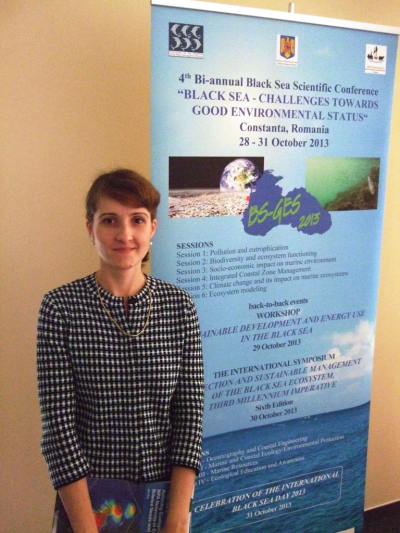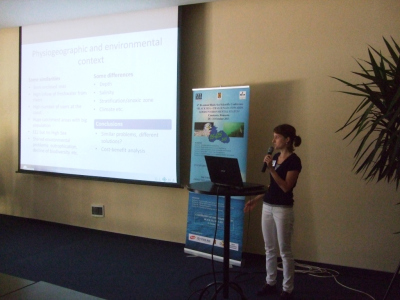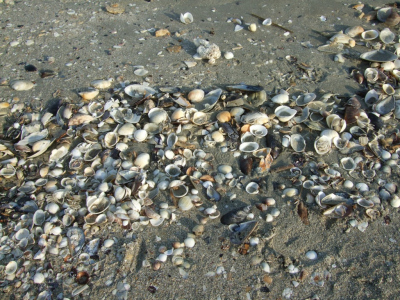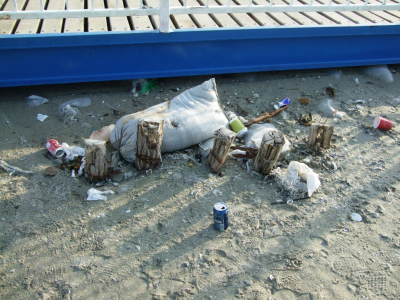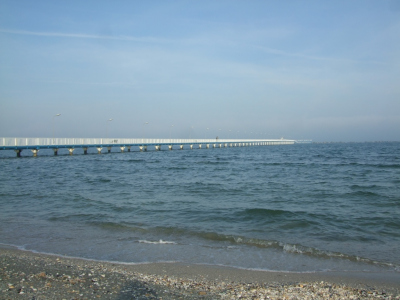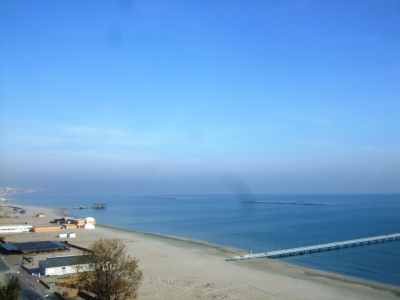Page path:
Bremen International Graduate School for Marine Sciences
Nina Khuchua
Report of GLOMAR PhD student Nina Khuchua about her participation in the 4th Black Sea Scientific Conference in Constanta, Romania, 28 - 30 October 2013
The 4th Black Sea Scientific Conference “Black Sea: Challenges towards Good Environmental Status” took place from 28-30 October 2013 in Constanta, Romania. The conference is held every two years since 2008 and is an important public event in the field of environmental protection of the Black Sea. The Black Sea Scientific Conference is organized under the auspices of the Black Sea Commission (BSC) and hosted by Contracting Parties to the Bucharest Convention. The previous conferences in 2008 and 2011 were held in Bulgaria and Ukraine respectively. This year, the conference was jointly organized by the BSC, Ministry of Environment and Climate Changes of Romania and National Institute for Marine Research and Development “Grigore Antipa” (NIMRD).
In parallel, the following back-to-back events were held: Annual celebration of the International Black Sea Day, International Symposium “Protection and Sustainable Management of the Black Sea: 3rd Millennium Imperative” and Workshop “Sustainable Development and Energy Use in the Black Sea”.
The Black Sea Scientific Conference aims at bringing together scientists and decision makers from the whole Black Sea region, strengthening the science/policy interface and regional cooperation. It became an important forum where recent research results are presented and discussed in academia and industry concerning the protection of the Black Sea ecosystem and sustainable use of its marine and coastal resources.
This year, more than 150 participants attended the conference. The focus was on questions and challenges connected to the achievement of Good Environmental Status (GES) in the Black Sea. The conference was organized in five thematic sessions: (1) Session 1 on pollution and eutrophication; (2) Session 2 on biodiversity and ecosystem functioning; (3) Session 3 on socio-economic impact on marine environment; (4) Session 4 on Integrated Coastal Zone Management and (5) Session 5 on climate change and its impact on marine ecosystems. Additionally, there were plenary and poster sessions.
On day three, I had the chance to present some results of my PhD research during session 3 “Socio-economic impact on marine environment”. The title of my oral presentation was “Institutional comparison of the Black Sea and Helsinki Commissions – Impulses to improve the performance of the Black Sea Commission?” It concerned the questions of cooperation between the Baltic Marine Environment Protection Commission (HELCOM) and the Black Sea Commission (BSC) and possible transfer of approaches from HELCOM to BSC. The speech was followed by questions from the audience and an interesting discussion.
To sum it up, participation in the Black Sea Scientific Conference was very useful for me. It allowed me to strengthen my scientific network and learn more about current developments in the environmental protection of the Black Sea. The positive feedback regarding my research motivated me to further explore certain ideas and also provided new impulses. I am very grateful to GLOMAR whose financial support allowed me to participate in this event.
In parallel, the following back-to-back events were held: Annual celebration of the International Black Sea Day, International Symposium “Protection and Sustainable Management of the Black Sea: 3rd Millennium Imperative” and Workshop “Sustainable Development and Energy Use in the Black Sea”.
The Black Sea Scientific Conference aims at bringing together scientists and decision makers from the whole Black Sea region, strengthening the science/policy interface and regional cooperation. It became an important forum where recent research results are presented and discussed in academia and industry concerning the protection of the Black Sea ecosystem and sustainable use of its marine and coastal resources.
This year, more than 150 participants attended the conference. The focus was on questions and challenges connected to the achievement of Good Environmental Status (GES) in the Black Sea. The conference was organized in five thematic sessions: (1) Session 1 on pollution and eutrophication; (2) Session 2 on biodiversity and ecosystem functioning; (3) Session 3 on socio-economic impact on marine environment; (4) Session 4 on Integrated Coastal Zone Management and (5) Session 5 on climate change and its impact on marine ecosystems. Additionally, there were plenary and poster sessions.
On day three, I had the chance to present some results of my PhD research during session 3 “Socio-economic impact on marine environment”. The title of my oral presentation was “Institutional comparison of the Black Sea and Helsinki Commissions – Impulses to improve the performance of the Black Sea Commission?” It concerned the questions of cooperation between the Baltic Marine Environment Protection Commission (HELCOM) and the Black Sea Commission (BSC) and possible transfer of approaches from HELCOM to BSC. The speech was followed by questions from the audience and an interesting discussion.
To sum it up, participation in the Black Sea Scientific Conference was very useful for me. It allowed me to strengthen my scientific network and learn more about current developments in the environmental protection of the Black Sea. The positive feedback regarding my research motivated me to further explore certain ideas and also provided new impulses. I am very grateful to GLOMAR whose financial support allowed me to participate in this event.
Integrated Coastal Zone Management (ICZM) and sustainable tourism remain a challenge on the Black Sea coast
The beach of Mamaia, Romania is overloaded with buildings to host as much tourists as possible. The health of coastal ecosystems remains a rather random issue



